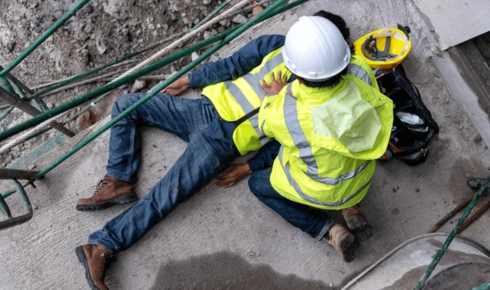A workplace injury can happen in an instant, but the aftermath often lasts much longer. Whether you slipped on a wet floor, suffered a back strain lifting heavy equipment, or were hurt in a construction accident, knowing what to do next is critical. Florida’s workers’ compensation system is meant to help you recover physically and financially, but the process can be confusing and full of pitfalls. Acting quickly—and correctly—can make a significant difference in your outcome.
This guide walks you through the essential steps to take after a workplace injury in Florida, from reporting the accident to getting medical care and navigating the workers’ compensation claim process.
Step 1: Get Medical Help Immediately
Your health should always come first. Even if your injury seems minor, seek medical attention right away. Some injuries—like concussions, back strains, or repetitive motion injuries—may not cause immediate symptoms but can worsen over time.
In emergencies, you can go to any hospital or urgent care clinic for treatment. Once you’re stable, notify your employer as soon as possible so they can refer you to an approved doctor. Under Florida law, you must be treated by a healthcare provider authorized by your employer’s workers’ compensation insurance company for your medical expenses to be covered.
Be sure to explain clearly to your doctor that your injury happened at work. Accurate documentation is key to your claim later on.
Step 2: Report the Injury to Your Employer
Florida law requires injured employees to report their injury to their employer within 30 days of the incident—or within 30 days of discovering that an illness or injury is work-related. Missing this deadline could cause your workers’ compensation claim to be denied.
When reporting, be as specific as possible. Please include the date, time, and location of the incident, as well as a description of how it occurred. For example, if you were involved in a construction accident, describe what you were doing at the time, any safety hazards involved, and whether anyone witnessed the event.
After you report your injury, your employer must notify their insurance carrier within seven days. You should then receive information about your claim, including the assigned adjuster and the list of authorized medical providers.
Step 3: Keep Detailed Records
Documentation is one of the most important aspects of a successful workers’ compensation claim. Keep copies of everything related to your injury and recovery, including:
• Medical records and bills
• Doctor’s notes and work restrictions
• Emails or letters from your employer or the insurance company
• Wage statements or proof of lost income
• Photos of your injury or the accident scene
If you were hurt in a construction accident, it’s essential to document the site conditions and any equipment involved. These details can help determine whether safety violations or third-party negligence contributed to your injury.
Step 4: Follow the Doctor’s Instructions
Once you’re under medical care, follow your doctor’s treatment plan closely. Attend all scheduled appointments, take your prescribed medications as directed, and refrain from engaging in any activities that could delay your recovery. If your doctor releases you for modified or light-duty work, communicate clearly with your employer about what you can and cannot do.
Failing to follow your doctor’s instructions could jeopardize your benefits. Insurance companies often use missed appointments or ignored restrictions as justification for denying or reducing compensation.
Step 5: Understand the Benefits You’re Entitled To
Florida’s workers’ compensation system provides several types of benefits for injured workers, depending on the severity and duration of the injury. These benefits include:
• Medical benefits: Covers treatment costs, prescriptions, physical therapy, and rehabilitation.
• Wage replacement benefits: If you cannot work temporarily, you may receive two-thirds of your average weekly wage.
• Temporary total disability (TTD): For workers completely unable to return to work during recovery.
• Temporary partial disability (TPD): For workers who can return in a limited capacity but earn less than before.
• Permanent impairment benefits: If your injury causes long-term physical limitations.
• Death benefits: If a worker dies from a job-related injury, dependents may receive compensation and funeral costs.
If you’re unsure which benefits apply to your case, a top-rated Florida workers’ comp lawyer can help evaluate your situation and ensure you’re getting the compensation you deserve.
Step 6: Watch Out for Common Mistakes
Even minor errors can delay your workers’ compensation claim or cause it to be denied. Some of the most common mistakes include:
• Waiting too long to report the injury
• Failing to get treatment from an authorized provider
• Returning to work too soon
• Not following medical advice
• Misunderstanding wage replacement calculations
Be proactive and stay informed. Always maintain open communication with your employer, insurance adjuster, and doctor—but be cautious about signing any documents or accepting settlements without thoroughly understanding the terms.
Step 7: Know What to Do if Your Claim Is Denied
Unfortunately, not all claims go smoothly. Your employer or their insurance company may deny your claim, arguing that your injury wasn’t work-related, that a preexisting condition caused it, or that you missed a deadline.
If this happens, you have the right to appeal. You can file a Petition for Benefits with the Florida Office of Judges of Compensation Claims (OJCC). This process involves hearings during which both sides present their evidence. It’s strongly recommended to have legal representation during this stage—a top-rated Florida workers’ comp lawyer can gather medical evidence, question witnesses, and advocate on your behalf.
Step 8: Handle Return-to-Work Issues Carefully
Your employer may offer light-duty or modified work after your injury. This allows you to return to the workplace in a limited capacity while continuing to recover from your injury. However, the job must align with your doctor’s restrictions.
If your employer pressures you to take on tasks outside your medical limits, you have the right to refuse unsafe work. Document any such interactions, as this may become evidence if your employer retaliates or attempts to terminate your benefits.
If you were injured in a construction accident, returning to a worksite too soon can be especially dangerous. Heavy machinery, scaffolding, and unstable structures require full physical capability and focus—never risk reinjury to please your employer or insurer.
Step 9: Understand Retaliation Is Illegal
Some workers fear reporting an injury or filing a claim because they worry about losing their job. However, Florida law prohibits employers from retaliating against workers who file for workers’ compensation. Retaliation can include firing, demotion, reduced hours, or harassment.
If you suspect retaliation, document every incident and contact a lawyer immediately. A top-rated Florida workers’ comp lawyer can help you file a retaliation claim and protect your employment rights.
Step 10: When to Call a Lawyer
Not every workplace injury requires legal help, but many situations benefit from it—especially when the claim becomes complicated or contested. Consider hiring a lawyer if:
• Your employer denies that the injury occurred at work.
• The insurance company refuses to pay medical bills or wage benefits.
• You’re being pressured to return to work before you’re ready.
• You were hurt in a serious construction accident or by defective equipment.
• You believe you’re entitled to permanent disability benefits.
A skilled lawyer can investigate your claim, gather expert medical testimony, and negotiate a fair settlement. They’ll ensure deadlines are met and protect you from employer retaliation.
FAQs About Workplace Injuries in Florida
1. How long do I have to file a workers’ compensation claim in Florida?
You must report your injury to your employer within 30 days and file your claim within two years of the accident.
2. Can I see my own doctor?
Only if it’s an emergency; otherwise, you must see a doctor authorized by your employer’s insurance company.
3. What if my employer doesn’t have workers’ compensation insurance?
You may still qualify for benefits through the state’s Employee Assistance and Ombudsman Office or by pursuing a third-party claim.
4. How much will I receive in wage benefits?
Typically, workers receive about two-thirds of their average weekly wage, subject to a statewide cap.
5. Do I need a lawyer for minor injuries?
If your injury is minor and your employer cooperates fully, you may not need one. However, if your claim is denied, delayed, or undervalued, consulting a top-rated Florida workers’ compensation lawyer is wise.
Final Thoughts
Getting injured at work can be overwhelming, but you don’t have to face the process alone. From initial treatment to filing your claim and returning to work safely, each step matters. Florida’s workers’ compensation system is designed to help you recover, but it often takes persistence and strong advocacy to get fair treatment.
Whether you were injured in an office or a construction accident, understanding your rights ensures you receive proper medical care and full compensation. If your employer or insurer makes things difficult, don’t wait—speak with a top-rated Florida workers’ comp lawyer who can help you navigate the system and secure the benefits you’ve earned.




